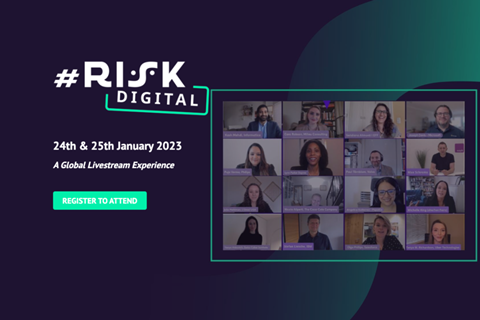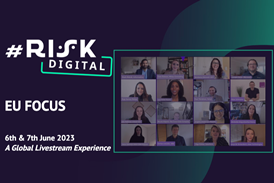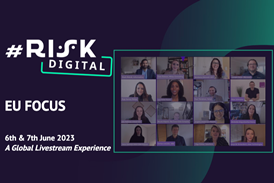We are delighted to announce Dr Yanos Michopoulos as a guest speaker at #RISK Digital, a global livestream experience that examines the changing risk landscape.
![Yanos Nichopoulos Headshot (1)[23]](https://d6t93aut4ltrr.cloudfront.net/Pictures/280xAny/8/4/2/17842_yanosnichopoulosheadshot123_257873.jpg)
Streaming live January 24 and 25, #RISK Digital gives global audiences the chance to improve understanding about how to mitigate risks, reduce compliance breaches and improve business performance.
Managing Director at Epiphany Enterprises, Dr Yanos Michopoulos has over 30 years’ senior experience in sectors including Energy, Infrastructure, Transportation and Private Equity across the EMEA region.
This January at #RISK Digital, Yanos will appear on a panel of experts to discuss the role of ESG in Risk Management and Governance.
→ Hear more from Dr Yanos Michopoulos in his panel debate: “The Role of ESG in Risk Management and Governance”.
Time: 11:30 - 12:15 GMT | Date: Wednesday 25th January 2023
Below Yanos sheds light on his professional journey and introduces some of the issues being debated during his #RISK Digital session.
Could you outline your career pathway so far?
My professional career has been mainly in the Energy and related sectors, including Oil & Gas, Renewables, Infrastructure, Transportation and Private Equity, across the EMEA region. I have managed large P&Ls (> 1 bl €) and complex KPIs, led major organisational and cultural transformations, turnarounds, new market entries etc.
More importantly, I have led, mentored, and coached large and diverse teams, operating (virtually) across different functions, and distributed in various locations, countries, and cultures.
Until very recently, I was the Chair of the BoD of DESFA, the newly privatised, but still regulated Gas Transmission System Operator in Greece, where I oversaw the company’s transformation from a public enterprise to private, and from a local business model to international, while improving its corporate governance framework and ESG strategy.
Besides my Board directorships, I am also corporate governance and leadership development course leader, mentor, and coach. I have a PhD in Physics from Durham University (UK) and I recently obtained my CFA-accreditation in ESG investing.
What are the primary ways in which ESG impacts upon an organisation’s financial, operational, and reputational risks?
There are many ways ESG considerations can help mitigate risks. For instance:
- Cost reduction and increased efficiencies in the supply chain
- Reduce the risk of fines and state intervention
- Reduce negative externalities, defined as the situations where the production or consumption of good and services creates costs to others that not reflected in the prices charged to them. Pollution penalties and carbon taxes are typical examples.
But it can also have benefits such as:
- Increase employee retention, motivation, productivity and ultimately satisfaction
- Improved ability to benefit from sustainability megatrends, such as emerging markets, urbanisation, technological innovation, and demographic changes
- Business development opportunities, e.g. the circular economy, introduction of Green and ESG-related products and aspects of the so-called Blue economy.
What challenges do organisations face as they bid to integrate ESG into risk management and governance programmes?
There are many ways in which ESG factors can impact an organisation. However, identifying those issues that are genuine material to a sector and company is one of the most active challenges within ESG. Each organisation is unique and faces its own challenges related to culture, business model, supply chain structure, etc. So not only are there substantial differences between sectors, but there are also differences between what is most material to individual companies within a single sector.
Some other challenges include:
- Data availability – although ESG data is becoming available via specialised providers, disclosure is still a significant challenge, especially in non-regulated sectors, as corporate practices vary in quality and cope
- Modelling – it can be challenging to integrate ESG into traditional risk management systems, as they do not always have a short-term (or even direct) financial impact. Moreover, most models extrapolate from historical data, which may be less relevant for forecasting future ESG-related outcomes. For example, measuring a company’s past carbon footprint does not give much information about the future, as understanding its strategy for reducing its carbon intensity.
- Greenwashing - the term originally described misleading claims about environmental practice, performance, or products, but has been used more widely to incorporate ESG factors more broadly. 4However, there are various initiatives from governments, as well as voluntary actions and initiatives, that contribute to maintaining and enhancing the implementation of credible ESG practices and reporting.

Hear more from Dr Yanos Michopoulos in his panel debate: “The Role of ESG in Risk Management and Governance”.
The session sits within a two-day agenda of insight and guidance at #RISK Digital, a risk-focused livestream experience taking place on January 24 and 25.
The event unites thought leaders and subject matter experts for a deep-dive into organisational approaches to handling risk. Content is delivered through keynotes, presentations and panel discussions.
- Session: (Stream 2) “The Role of ESG in Risk Management and Governance”
- Time: 11:30am – 12:15 GMT
- Date: Wednesday 25th January 2023
#RISK Digital is also available on-demand for global viewing















No comments yet